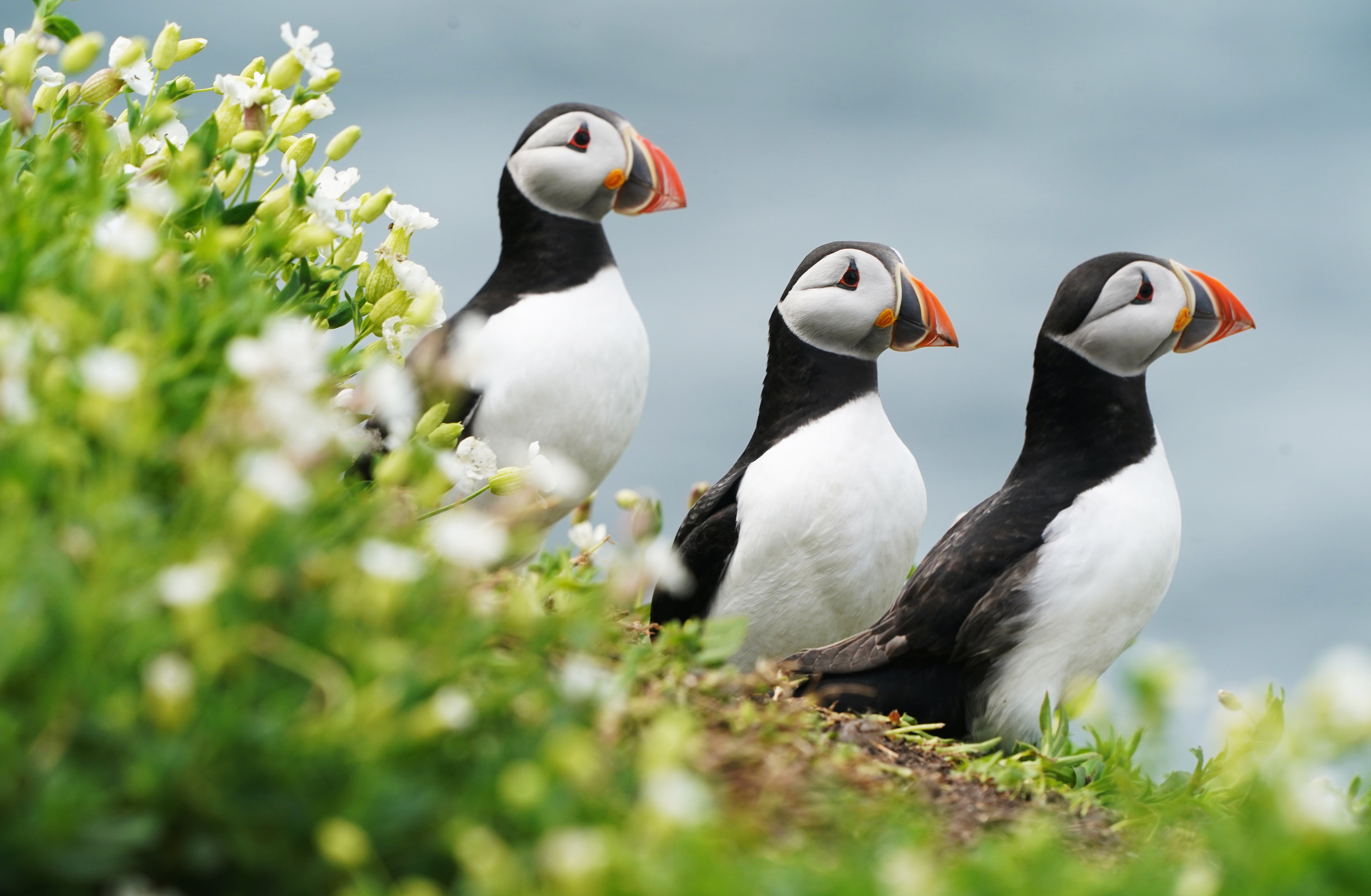Puffins survey on Farne Islands checks for signs of climate change impact
National Trust rangers working on the Farne Islands off the Northumberland coast delve into puffin burrows to look for signs that they are occupied.

Your support helps us to tell the story
From reproductive rights to climate change to Big Tech, The Independent is on the ground when the story is developing. Whether it's investigating the financials of Elon Musk's pro-Trump PAC or producing our latest documentary, 'The A Word', which shines a light on the American women fighting for reproductive rights, we know how important it is to parse out the facts from the messaging.
At such a critical moment in US history, we need reporters on the ground. Your donation allows us to keep sending journalists to speak to both sides of the story.
The Independent is trusted by Americans across the entire political spectrum. And unlike many other quality news outlets, we choose not to lock Americans out of our reporting and analysis with paywalls. We believe quality journalism should be available to everyone, paid for by those who can afford it.
Your support makes all the difference.A crucial survey of one of Britain’s most beloved seabirds is being carried out to see if its numbers are being affected by climate change.
On their hands and knees, National Trust rangers working on the Farne Islands off the Northumberland coast delve into puffin burrows to look for signs that the holes – some up to 3ft deep – are occupied.
They could find an egg, the unpleasant squelch of puffin droppings, or worse, the sharp peck of a beak, which is all part of the surveying experience for the 14-strong team.
Annual surveys of the puffin population on the Farnes started five years ago but they were suspended during the pandemic, so this year’s figures will be vital for understanding how the seabirds are doing.
Recent heavy storms flooded burrows and washed away soil, and wider climate change could have affected sand eels, which are their primary source of food, leading to fears about their overall numbers.
The Farne Islands are home to one of England’s largest puffin populations, but numbers have fallen by 15% in recent years, so the current survey will give experts a clearer picture of the state of their population.
Puffins – which are the size of a small bag of sugar and can live to be 35 – return to breed each year after spending the winter out at sea, arriving back on the islands in late March or early April.
They stay until the last chicks fledge in mid-August.
Harriet Reid, area ranger at the National Trust, said: “Puffins literally live on the edge in every sense, mostly living on remote, ground predator-free islands and are very picky when it comes to food, preferring sand eels.
“In order to track how puffins are doing, our counts are particularly important so that we can analyse population trends to see if they are increasing, decreasing or stable.
“Although numbers appeared to drop in 2021 due to the team being unable to carry out a full survey, it is too early to be alarmed by these figures, making this year’s count particularly critical.”
Dr Richard Bevan, lecturer in zoology at Newcastle University, said: “Looking at the data, it is worrying to see that over the last four years we have seen a downward trend.
“However, these are data for a short time period and compared to the population counts in the early 1990s they are still reasonable numbers.
“The uncertainty from the last couple of seasons due to Covid is something that is really important to address with this year’s figures.”